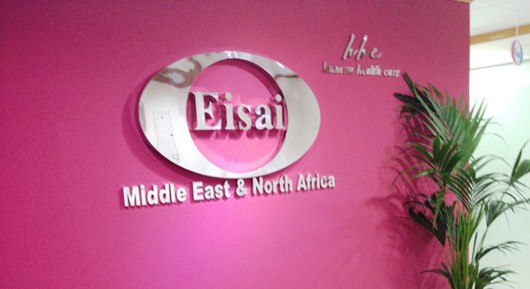 Japanese pharma giant Eisai plans to open a new 70-employee-powered research facility that will hone in on drug discovery in dementia, an area that has been littered with new drug failures as of late.
Japanese pharma giant Eisai plans to open a new 70-employee-powered research facility that will hone in on drug discovery in dementia, an area that has been littered with new drug failures as of late.
Set to open in 2019, the Eisai Center for Genetics Guided Dementia Discovery – or more colloquially known as G2D2 – will focus on a new discovery approach termed immuno-dementia to look beyond amyloid-beta- and tau-targeting therapies, which have long been dementia’s leading class of drugs.
More specifically, G2D2 will tap into the particulars of the neuroinflammation pathway (microglial activation), which is considered to be a key feature of the dementia pathology with various studies suggesting a correlation with the onset of dementia.
From this, Eisai hopes proteins expressed on microglia could be potential drug discovery targets, and has set a strategic goal to introduce a compound ready for clinical development by 2020.
The area could very well be a gamble for the Japanese group as rivals AstraZeneca and Eli Lilly – who partnered up to look into BACE1 inhibitor candidates in Alzheimer’s – dropped its drug just earlier this week due to interim data suggesting little chance of efficacy.
Merck & Co has also seen failure with its BACE1 inhibitor verubecestat, which also led to the drug’s abandonment.
However Eisai, which also has a BACE inhibitor elenbecestat in late-stage testing, has several dementia candidates in its pipeline, and has partnered with Biogen for three of those – including elenbecestat.
The group has also partnered up with Purdue Pharma to develop phase II candidate lemborexant, designed to treat irregular sleep-wake rhythm disorder and Alzheimer’s disease.
Although Eisai, which has a 30-year history in the dementia area, are optimistic and said it could “advance drug discovery with high probabilities of success […] by operating G2D2 with strengths in human genetics”.
Eisai is also buoyant on G2D2’s geographical positioning too. Closely neighbouring with Harvard University, Massachusetts Institute of Technology and Tufts University, the facility will be situated in the Alewife Research Centre, located in northwest Cambridge, Massachusetts.
There, it will leverage the benefits of the location – which according to Eisai, is one of world’s leading biotechnology clusters – to look into research collaborations with external organisations.
Such collaborations will likely involve governmental, industry and academia sectors.
On a related note, heading up the research facility will be Nadeem Sarwar, the current president of Andover innovative Medicines (AiM) Institute – which is set to close down when G2D2 launches – and will oversee the facilities data science, immuno-dementia biology, discovery science and chemistry departments.




